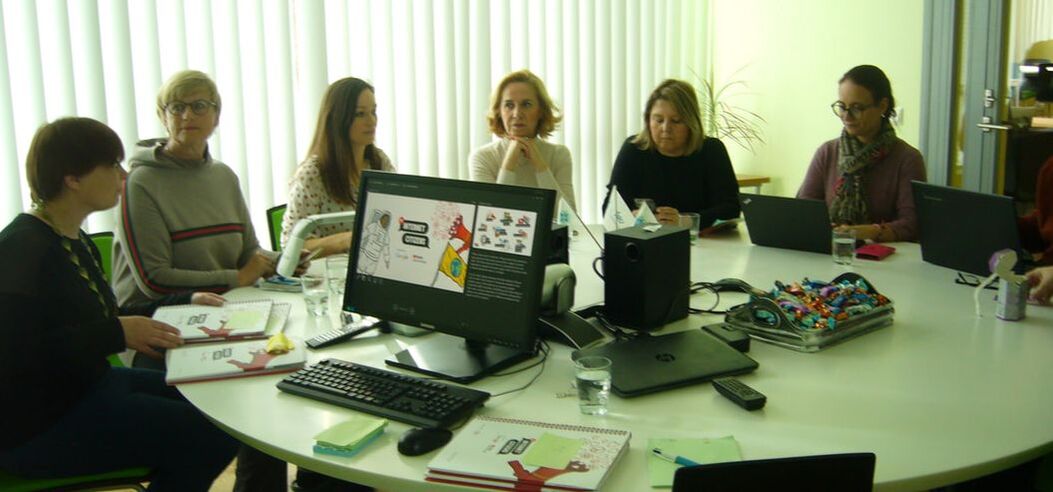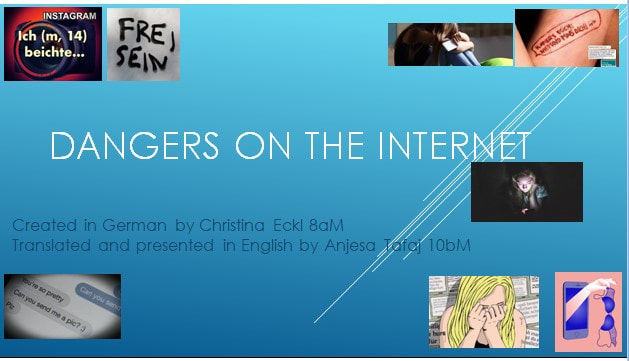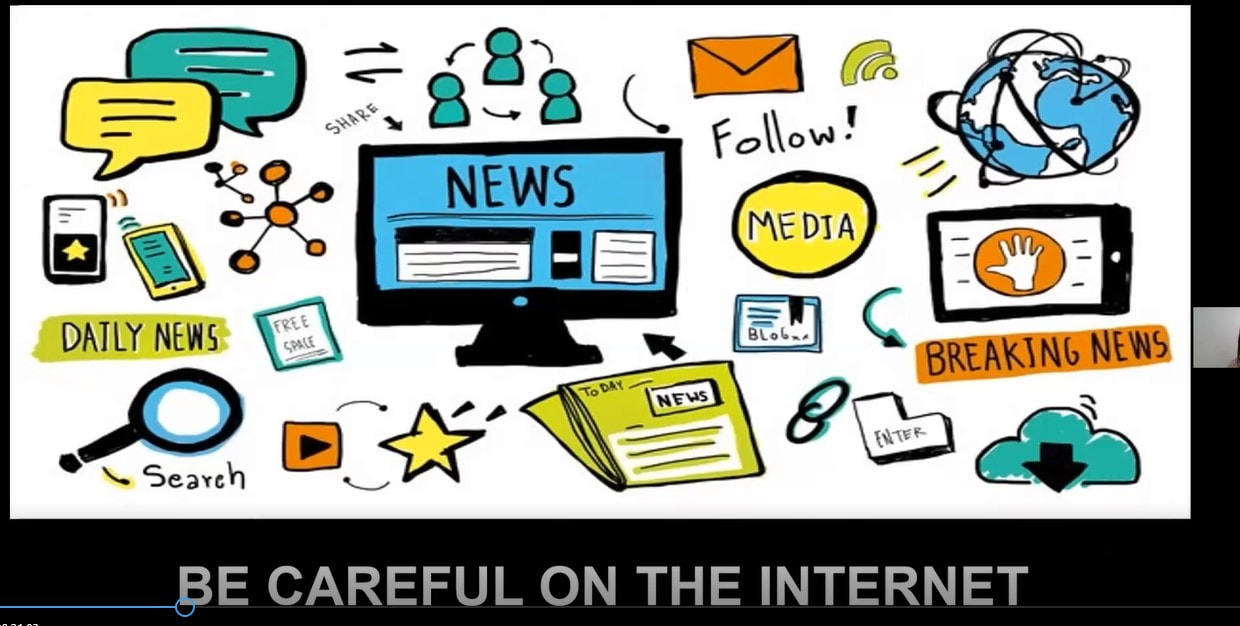Being explicit about the dangers on the internet
The internet offers a great platform for everything that people like to do in life: entertainment, diverse interaction with other people, learning new things, and much more. No wonder that children and young people like to be online. They watch videos, listen to music, exchange ideas on social networks, search for information or surf the web without a hitch. With all the possibilities, parents or teachers quickly lose track of things. It is all the more important to talk to the children about what they are doing online and to help them navigate the World Wide Web safely.
The curriculum covers countless areas for “media education”. In spite of all this, it is advisable to specifically address the dangers that these diverse possibilities bring!
The internet offers a great platform for everything that people like to do in life: entertainment, diverse interaction with other people, learning new things, and much more. No wonder that children and young people like to be online. They watch videos, listen to music, exchange ideas on social networks, search for information or surf the web without a hitch. With all the possibilities, parents or teachers quickly lose track of things. It is all the more important to talk to the children about what they are doing online and to help them navigate the World Wide Web safely.
The curriculum covers countless areas for “media education”. In spite of all this, it is advisable to specifically address the dangers that these diverse possibilities bring!
|
Dangers and Limits
1. Sexting Sexting - better known as sexy pictures, selfies, posing, etc., is one of the greatest dangers on the internet. Many 11-14 year olds send and receive such intimate recordings via social networks, and the trend is rising. Parents and teachers should do everything possible to prevent the affected children from harming themselves. Teenagers in adolescence are seldom aware of the problem, which is why discussions and education are extremely important in any case. |
2. Bullying
Young people have always liked to tease and marginalise themselves; the use of digital media has raised this problem to a new level, because the range of the use can shame affected students on social media beyond school.
Excluding, emails, group meetings against individual students, or spreading lies turns into cyberbullying, because those affected can no longer avoid it at home.
Parents and teachers often do not notice what is happening.
What can be done against cyberbullying?
Humiliations and insults must always be stopped. There are ways that all together are helpful and can end the bullying.
Young people have always liked to tease and marginalise themselves; the use of digital media has raised this problem to a new level, because the range of the use can shame affected students on social media beyond school.
Excluding, emails, group meetings against individual students, or spreading lies turns into cyberbullying, because those affected can no longer avoid it at home.
Parents and teachers often do not notice what is happening.
What can be done against cyberbullying?
Humiliations and insults must always be stopped. There are ways that all together are helpful and can end the bullying.
- Unsubscribe from social media
- Inform teachers or school and address the topic in class
- Find friends and supporters
- Talk to someone you trust about it
- Call in the police in serious cases
|
3. Excessive use of computer games
This can become an addiction. It's not just about online role-playing games, but also about addiction to social networks or online pornography. Anyone who is shy anyway; doesn't like to socialize, has weak self-confidence and little sense of achievement, is more prone to computer game addiction. Addicted is someone who e.g.
|
4. How to react in emergency cases
In Germany, for students under 13 years of age, involving the police does not have any criminal consequences, but they can be sentenced under civil law to compensation for pain and suffering (ages differ in other countries).
Above all, however, the sensitization of the pupils in school is a tried and effective means to limit or prevent the problems use of media can cause.
Suitable for this are: (lead by teachers or/and specialists from out of school)
Schools have had good experiences with the use of specialists in schools, in weekly themed projects or workshops.
Media offices from municipalities, universities and public institutions are suitable for cooperation.
The police also have a central point of contact for cybercrime in the federal and state levels. Special school liaison officers work very effectively with schools.
- Obtain clarity about the situation: who sent what, when, who distributed it, how many received it?
- If possible, make sure that the smartphone in question is switched off.
- Under no circumstances should you reproach the child, but protect, support and empower them.
- Clarify that it is not the child who is responsible for sending the photos, but the person who broke the trust.
- Immediately request the perpetrator and others involved to delete the recordings. Informing those responsible at the school, if they are not yet aware of the incident.
- Informing the parents of the other children who sent or forwarded the intimate photos. You can also call in the responsible school psychological service or the police and file a complaint.
- Clarify with those responsible and those involved in the school that the topic is dealt with in a qualified manner in class, so that such incidents no longer occur.
In Germany, for students under 13 years of age, involving the police does not have any criminal consequences, but they can be sentenced under civil law to compensation for pain and suffering (ages differ in other countries).
Above all, however, the sensitization of the pupils in school is a tried and effective means to limit or prevent the problems use of media can cause.
Suitable for this are: (lead by teachers or/and specialists from out of school)
- individual teaching units
- case offers
- workshops
- media project weeks
Schools have had good experiences with the use of specialists in schools, in weekly themed projects or workshops.
Media offices from municipalities, universities and public institutions are suitable for cooperation.
The police also have a central point of contact for cybercrime in the federal and state levels. Special school liaison officers work very effectively with schools.
How and where are young people attracted to using the internet
|
Entertainment offers, e.g .:
Service offers, e.g. .:
Information offers, e.g. .:
|
Game offers, e.g. .:
Creative design offers, e.g. .:
Communication offers, e.g. .:
|
Further reading:







